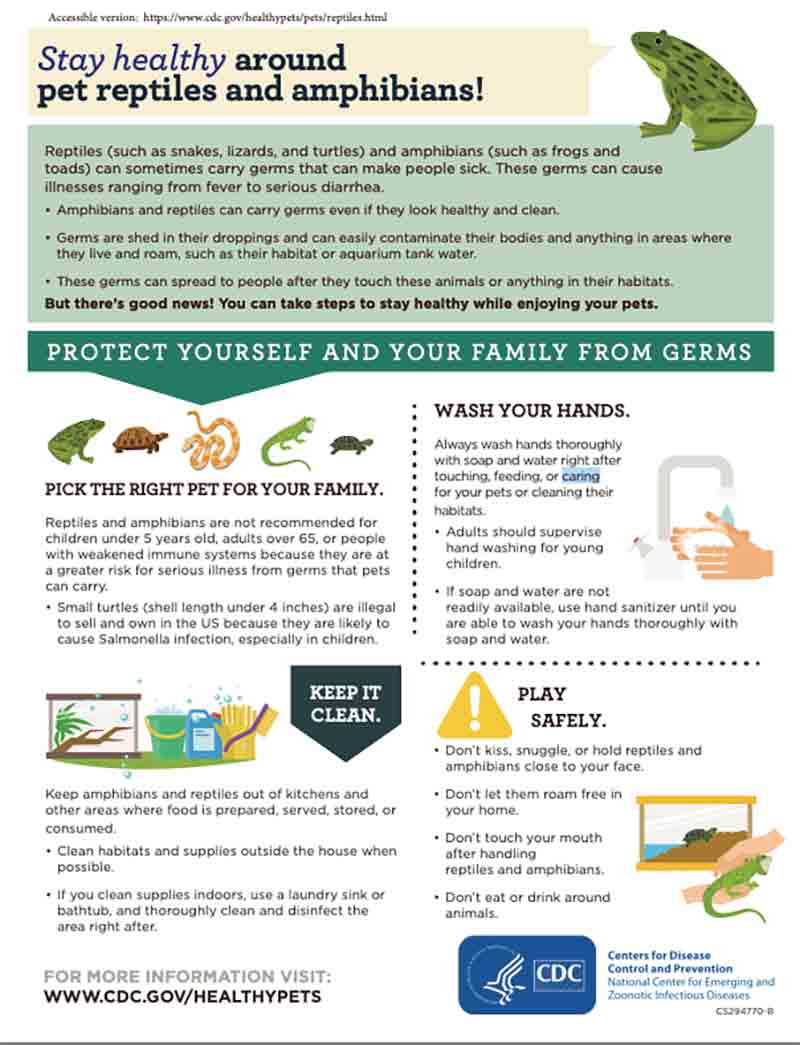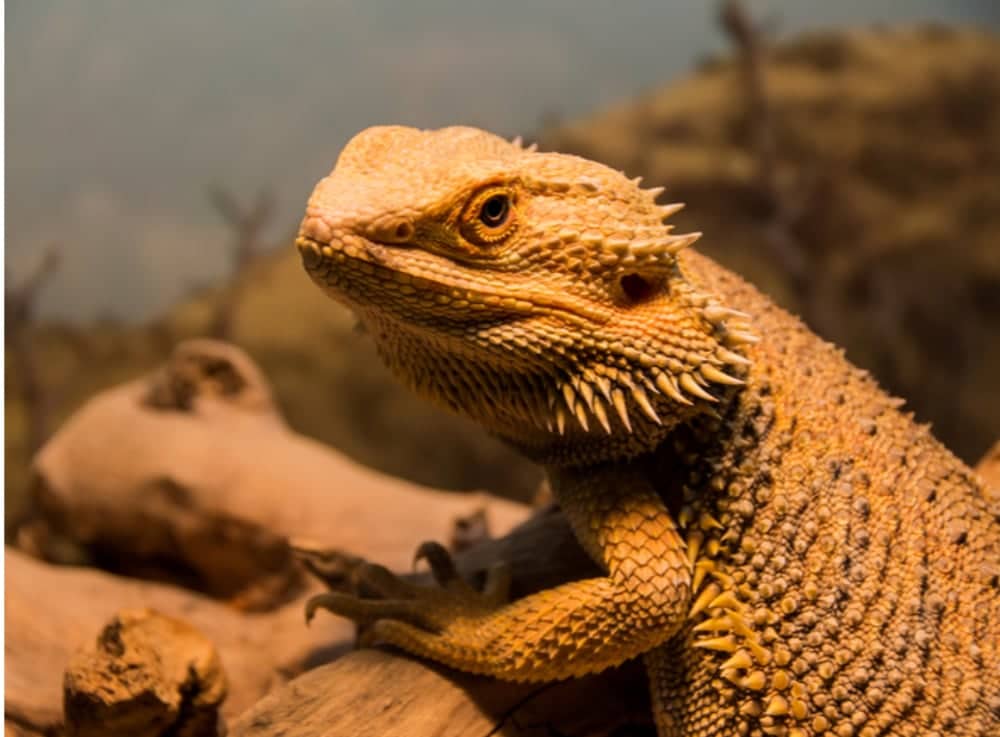Bearded dragons and most other reptiles can carry Salmonella in their gut and droppings even when they look healthy.
The Centers for Disease Control and Prevention has issued an investigative notice that a Salmonella outbreak has bee linked to bearded dragons. From January 2021 to December 2021, 44 people in 25 states who either handled a bearded dragon or its enclosure and accessories are reported to have gotten sick with Salmonella. Of the 44, 15 people required hospitalization.
Bearded dragons and most other reptiles can carry Salmonella in their gut and droppings even when they look healthy. Salmonella can spread on anything in its environment and onto humans.
The CDC notice points out the importance of thoroughly washing your hands with soap and water after handling your bearded dragon or any reptile, feeding it, and cleaning its enclosure.
The notice also wants against snuggling with your bearded dragon and eating or drinking around it. Keep your pet beard out of your kitchen and other areas where you eat, store or prepare food.

If possible, the CDC recommends you clean your bearded dragon enclosure and supplies such as hides and water bowls, outside of the house. If this is not possible, use an indoor laundry sink or bathtub and thoroughly clean and disinfect the wash area after use. Do not clean your bearded dragon accessories in the kitchen sink.
Salmonella symptoms include:
- Diarrhea and a fever higher than 102°F
- Diarrhea for more than 3 days that is not improving
- Bloody diarrhea
- So much vomiting that you cannot keep liquids down
- Signs of dehydration, such as: Not peeing much, dry mouth and throat, feeling dizzy when standing up
If you experience any of these symptoms, contact your healthcare provider immediately.
Remember to wash your hands immediately after handling your reptile or its accessories, enclosure. And also make sure your children wash their hands thoroughly as well.
For more information, visit the CDC website.



